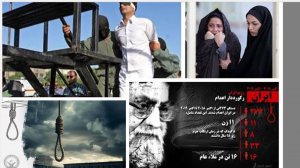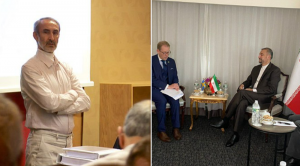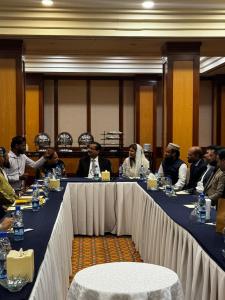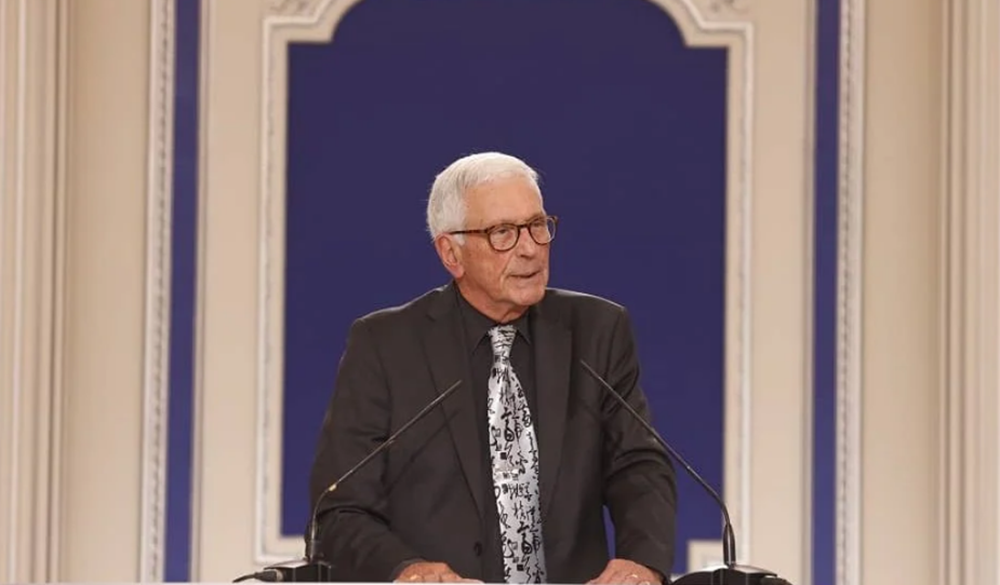
In his speech addressing an international conference on August 24, Kenneth Lewis, the lawyer representing members of the (PMOI) in the Swedish trial of Hamid Noury, detailed the legal complexities and significant outcomes of this landmark case.
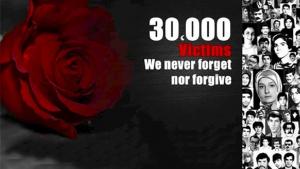
Mr.Lewis, who worked with the PMOI since 2003, said that the regime’s intent to exterminate the PMOI was religiously motivated and was based on their opinion that the PMOI represented religious heretics. And the events of this case, as we all know, took place in 1988.
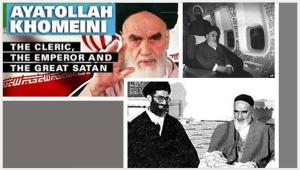
In August of 1979, Khomeini said, “We will act with them as we act with non-Muslims, with hypocrites, and we will suppress them.” In June 1980, he said, “They were able to fool our pure, credulous, truthful young people with their propaganda they know and know well.”
Mr. Lewis often actually compares the relationship of the PMOI with the mullah regime to the relationship between Martin Luther the Catholic church and the Pope
— NCRI
PARIS, FRANCE, September 11, 2024 /EINPresswire.com/ — The National Council of Resistance of Iran (NCRI) Foreign Affairs Committee in an article reported that in his speech addressing an international conference on August 24, Kenneth Lewis, the lawyer representing members of the People’s Mojahedin Organization of Iran (PMOI) in the Swedish trial of Hamid Noury, detailed the legal complexities and significant outcomes of this landmark case.
Speaking at a conference, Lewis emphasized the historic nature of the trial, which marked the first time the 1988 massacre of political prisoners in Iran was addressed in a court of law.
Lewis outlined how the Swedish court handled the case over 92 days, including a special session in Albania to hear testimonies from the People’s Mojahedin Organization of Iran (PMOI) members unable to travel to Sweden.
Discussing the legal grounds of the court’s ruling, he argued that the regime’s intent to eliminate the PMOI was not linked to the Iran-Iraq conflict but was instead rooted in religious persecution. He cited statements by the regime’s leaders to demonstrate that their actions amounted to genocide.
Lewis also criticized the Swedish government for allowing Noury’s release in a prisoner exchange, calling it a “denial of justice” for the victims and their families.
He emphasized that the trial was a significant step toward holding the Iranian regime accountable, as it provided a comprehensive legal record of the atrocities committed during the 1988 massacre.
In his closing remarks, Lewis condemned the Iranian regime’s ongoing efforts to spread propaganda and distract from its human rights violations, including false allegations about the PMOI and organized terrorist attacks against its supporters.
He expressed hope that these actions would eventually be prosecuted in an international criminal court, ensuring justice for the victims of the regime’s crimes.
The full text of Kenneth Lewis’ speech follows:
Madam Rajavi, learned colleagues, brothers and sisters, friends,
I think most of you know that I had the honor of representing several plaintiffs belonging to the PMOI in the trial of Hamid Noury in Stockholm.
You may know also that the trial in the district court took place for 92 days, and the court even traveled to Albania for two weeks to allow very important testimony from members of the PMOI who could not travel to Sweden.
The court heard testimony from 34 plaintiffs and 26 witnesses. In addition, we had a whole number of so-called expert witnesses, professors, and other legal experts.
I think you also know that Hamid Noury was convicted to life in prison for his participation in the massacre of political prisoners in Gohar Dasht Prison outside Tehran and so on.
What you may not be familiar with is the fact that the Swedish courts called his crimes a violation of international law as far as the members of the PMOI were concerned, and they called it murder regarding the leftist prisoners who were executed.
The crime against international law, according to Swedish law, was a grave breach of the Geneva Conventions in the form of war crimes. I’m going to explain a little bit later.
I won’t bore you with the legal complications of the Swedish legal system. I’ll get back to it shortly, but the district court in Stockholm and subsequently also the court of appeals chose to take the prosecutor’s primary option, which was stating that the 1988 massacre was a part of an international armed conflict between Iran and Iraq.
At that time, we did not have crimes against humanity in Swedish law, and this is one of the explanations why the court went in that direction. From the very outset of this case, I questioned the prosecutor’s choice of war crimes as the basis of the indictment, especially about the international armed conflict between Iran and Iraq.
The problem facing the prosecutors, as I just mentioned, was that the possibility of prosecuting Hamid Noury for crimes against humanity didn’t exist in Swedish law. It was only introduced into Swedish law in 2014 rather late.
And the events of this case, as we all know, took place in 1988. So, we were forced to follow an older law, and this was also the reason the prosecutors chose this avenue.
My own opinion, having worked with the PMOI since 2003, was that the regime’s intent to exterminate the PMOI was religiously motivated and was based on their opinion that the PMOI represented religious heretics.
This intent to exterminate the PMOI existed already long before June 20, 1981, and that’s the date when the PMOI was finally forced to take up arms to defend itself and to defend democracy in Iran after being attacked at this mass demonstration.
Thus, the policy of exterminating the PMOI has no nexus or connection with the non-international armed conflict either since the armed the non-international armed conflict began after 20th June 1981.
In addition, there was no nexus or connection to the international armed conflict between Iran and Iraq. We all know that that war began in 1980. We also know that the People’s Mojahedin went to the front line and fought against Iraq at that time until they were stopped by the regime.
The PMOI only came to Iraq in 1986. So, this claim that there was nexus just based on their presence there at the very end of this conflict, in my opinion, doesn’t hold water.
I would also refer to the testimony of Ambassador Lincoln Bloomfield, who also is here and is going to speak to you today, who has shown clearly that there was no, and this is a legal concept, overall control on the from the side of the Iraqis concerning the NLA or the PMOI in Iraq.
This is very important. But for about two and a half years, I tried to convince the Swedish prosecutors to consider the possibility of including the crime of genocide in the indictment.
I demonstrated for them for one thing that the adjustment of the indictment would have only required about 4 or 5 sentences because it was the same actual crimes that had been committed.
It’s just how you call them. What is the name of the crime? We tried for a long time, as I said, to convince them, and we tried to show that there was a religious intention.
And this is completely in agreement with the report of the United Nations repertoire which you’re going to hear in a while, that this intention to exterminate the PMOI existed already in 1979 after the mullahs had taken power.
In August of 1979, Khomeini said, “We will act with them as we act with non-Muslims, with hypocrites, and we will suppress them.” In June 1980, he said, “They were able to fool our pure, credulous, truthful young people with their propaganda they know and know well.”
This is a religious understanding of the PMOI. And the result of Khomeini’s and the regime’s positions, and I can I’m sure that Professor Rehman has been able to find lots of them. I have dozens of them. If you like any, I’ll send them to you. We see the result of this, for instance, in a decision written by the president of the so-called Revolutionary Court in Bam on July 24, 1980.
He wrote, “In the name of God, according to the decree of Imam Khomeini, the People’s Mojahedin are apostates and worse than non-believers. They do not deserve any property rights and not even the right to life.
Therefore, the Islamic Revolutionary Court should not pay any attention to their false complaint.”
This is a court, a so-called court, one of the revolutionary courts set up by the mullahs, and they point out that Khomeini had already said have no property rights and not the right to life. What is that?
Of course, we have also the so-called Fatwa of Khomeini from 1988, And I say so-called because we had a big discussion about that in the court. I don’t think it was a fatwa. A fatwa is a religious opinion, it was a hokm.
That means a decree to be followed by everyone in the country. And if you read it carefully, you’ll see that it’s not a religious opinion. It’s a hokm. It’s an order.
And inside this fatwa, we all know this famous sentence in which Khomeini says, “It is decreed that those who are imprisoned throughout the country and remain steadfast in their support of for the Monafeqin, the Mojahedin, are waging war on god and are condemned to execution.”
This is a religious motivation for the extermination, in this case, of prisoners. There can be no doubt about that, and it led to the execution of probably as many as 30,000 prisoners all over Iran.
Even after the massacre, which happened in 1988, leading members of the regime have continued to have this genocidal policy. I’ll only give you one example, and it’s from the late, thankfully late, president Ebrahim Raisi, who already in 2009 said, “Moharebeh sometimes refers to an organization.
An organization becomes a Mohareb organization such as the People’s Mojahedin. In the case of the MEK organization, anyone who is in any way who in any way contributes to the MEK because it is an organized group is referred to as Moharebeh. And, of course, the penalty for Mohareb is execution. It’s death.
Recently, the UN Special Rapporteur on Iran, as I understand, has rejected that the killing of thousands of Iranian political prisoners in 1988 could be legally described as a war crime. You can perhaps comment on it yourself. Rather, it’s seen as grave crimes against humanity and possibly and probably, if I understand correctly, genocide.
There are many very good discussions in Professor Rehman’s report, and I hope that people everyone here will read it if they haven’t already done so.
I’m especially happy about the conclusion of the report in which Professor Rehman says very clearly that “the Special Rapporteur calls upon individual member states of the United Nations to make use of universal jurisdiction to investigate, issue arrest warrants against, and prosecute individuals for atrocity crimes committed during the 1980s and in particular during 1981, 1982, and 1988, including crimes against humanity as well as genocide.” This is an extremely brave and clear conclusion.
When discussing with the prosecutors during these years, beyond trying to show the genocidal intent of the regime, which I think has been very clearly demonstrated, I tried to get them to understand that the PMOI developed its political positions from a modern and humane interpretation of Islamic scriptures and concepts.
Personally, I often actually compare the relationship of the PMOI with the mullah’s regime to the relationship between Martin Luther and the Catholic church and the pope.
And we all know that the Christian Reformation led to 100 years of war in Europe, and perhaps it’s still going on sometimes in North Island, for instance.
The fact that religious reformism develops into a political movement does not alter the fact that an organization, in this case, the PMOI, should still be considered a religious group in the context of the genocide convention, and this is very, very important.
We have both the question of intent and we have the question of what is the group. So, this is my firm opinion.
As we know, after the trial of Hamid Noury, his sentence of licensed imprisonment in the district court was upheld in the court of appeal, and the regime, by taking Swedish citizens hostage, was able to exchange Hamid Noury for two Swedish citizens.
In my opinion, this was disgraceful. And it also should be said you know, he was welcomed at Tehran airport as a hero with flowers and so on.
If you wish to receive the NCRI weekly Newsletter, please use the following link to subscribe: https://bit.ly/3SMgEla.
Shahin Gobadi
NCRI
+33 6 61 65 32 31
email us here
Hamid Noury was convicted to life in prison for his participation in the massacre of political prisoners in Gohar Dasht Prison outside Tehran and so on.
Legal Disclaimer:
EIN Presswire provides this news content “as is” without warranty of any kind. We do not accept any responsibility or liability
for the accuracy, content, images, videos, licenses, completeness, legality, or reliability of the information contained in this
article. If you have any complaints or copyright issues related to this article, kindly contact the author above.
![]()
Originally published at https://www.einpresswire.com/article/742276731/video-iran-kenneth-lewis-calls-for-international-accountability-following-landmark-hamid-noury-trial

